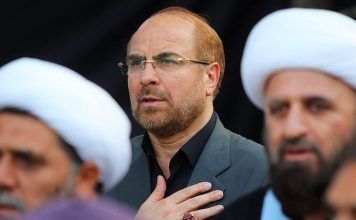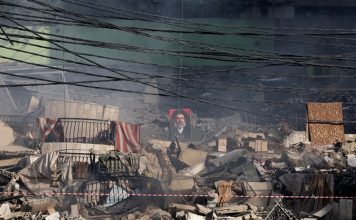A petition supporting the anti-regime protests in Iran was signed by more than 300 Christians in the first 24 hours of its circulation, the petition’s creator Mary Mohammadi said. The petition was shared privately through mobile phone texts rather than on public social media platforms, out of concern that the Iranian government may try to tamper with the petition.
The petition called for supporters of the protests to “take necessary and essential practical action against this 43-year-old morally corrupt regime,” and praised Iranians for their courage to protest in defense of their human rights. It condemned any form of compulsory religion and added that Christians believed in freedom of choice and thought.
“We, Christians, have not been spared [the regime’s] brutal oppression. Ongoing assassinations; imprisonment; torture; humiliation; rejection; flogging; exiling; forced veiling; deprivation of privacy (even in our own homes); deprivation of work and education; confiscation of property; and destruction of our churches are just a few examples of the regime’s desperate attempt to crush us. We have suffered, yet, we have not retreated,” the petition said.
[aesop_image img=”https://kayhanlife.com/wp-content/uploads/2022/09/2022-09-27T041012Z_1416816702_MT1AAP000ZBA2ZC_RTRMADP_3_MAHSA-AMINI-PARLIAMENT-PROTEST.jpg” panorama=”off” credit=”Protesters gather outside Parliament House to protest the death of Mahsa Amini in Iran at Parliament House in Canberra, Tuesday, September 27, 2022. REUTERS./ ” align=”center” lightbox=”off” captionsrc=”custom” captionposition=”left” revealfx=”off” overlay_revealfx=”off”]
There are approximately 800,000 Christians in Iran, of which 130,000 are ethnic Armenian and Assyrian Christians, and the remaining 670,000 converts from Islam.
The Iranian government considers Christians who have converted from Islam to be apostates, a form of religious abandonment which is a criminal offense under Iran’s law.
Human rights charities have repeatedly raised concerns about the detention and arrests of Christians and Christian converts by Iranian officials. At least 115 Christians were arrested in 2020 for practicing their faith in Iran, according to a report by Article 18, a London-based nonprofit that promotes freedom of religion in the country.
Mohammadi is a Christian, and a former prisoner in Iran. She is also the founder of the KeHMA movement, a Persian-language acronym for ‘Christians have the right to go to church.’ The movement — established in 2017 — aims to stop violence against Christians and provides support and legal advice to Christian prisoners in Iran.
“Not only is it unprecedented for a statement to be signed by more than 300 Christians in the KeHMA campaign’s history, it is also unheard of in the Iranian Christian community overall. These signatures were collected in less than two days,” Mohammadi told Kayhan Life. “It is not true that only radical political opposition groups are against the regime or that the only problem is women’s rights in Iran. Our statement shows the presence of different sections of society [engaged in this revolution] and the extent of the protests, which lend credibility to the revolution.”
Of the 309 men and women who have signed the petition, 90 percent are Christians living inside Iran, 10 percent are Christians living outside Iran, and 11 signatories — including Mohammadi — are former Christian prisoners.
“While we condemn the oppression of the people by the Iranian regime in the petition, the Christians also express their solidarity through practical actions, such as participating in the nationwide protests in Iran,” Mohammadi said.
Mohammadi was arrested in Tehran by security officials on Jan. 12, 2020 while taking part in a peaceful protest following the downing of Ukraine International Airlines Flight 752 by Iran’s military. She was taken to Iran’s notorious Qarchak prison for women, where she was denied food and water, and forced to take off her clothes and perform sit-ups naked while prison officers watched.
The 23-year-old had already served a six-month jail sentence for her participation in house churches, for which she was charged with “actions against national security” and “propaganda against the system.”
Anti-government and anti-regime demonstrations in Iran were sparked on Sept. 17 by the death of 22-year-old Mahsa Amini, who was detained in Iran by the country’s morality police for not adhering to the country’s strict dress code for women. Amini was arrested, and, protestors believe, killed by police while in custody.
The protests have since spread to almost every province in Iran. Responding to the unrest, Iran’s government approved a brutal crackdown on protestors, leaving an estimated 83 people dead and more than 450 people injured. Tehran also imposed an almost complete internet shutdown, leaving Iranians in the country without access to mobile networks and social media platforms. The government’s security forces have arrested more than 1,200 demonstrators since the protests began.







